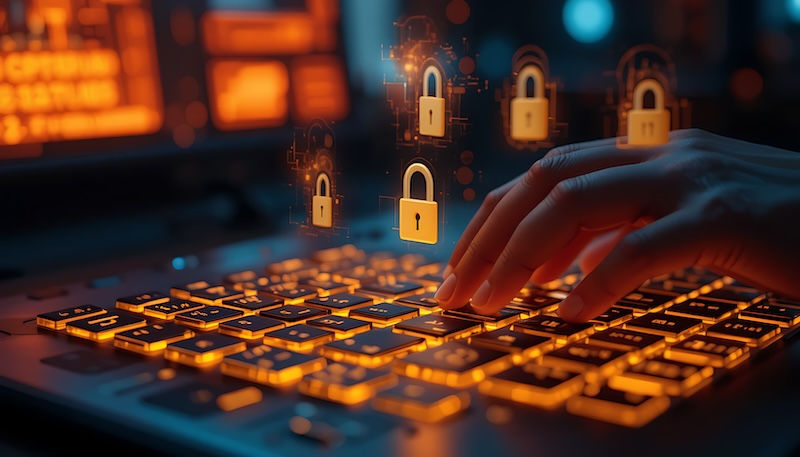Digital Travel Safety
- gotobowl82
- May 27, 2025
- 4 min read

How to Keep Your Devices Safe as You Travel This Summer
Summer travel is in full swing. And whether you're planning a family road trip, flying out for a beach vacation, or squeezing in some remote work while exploring new places, your digital devices are going with you. Laptops, tablets, phones, and even smartwatches are often essential companions. But while you're thinking about sunscreen and packing lists, it's just as important to think about how to protect your data and devices on the road.
At 208Geek, we help people and businesses stay secure in their daily digital lives—and that includes while they’re on vacation. So let’s talk about digital travel safety and what you can do to protect your technology from theft, data breaches, and travel-related mishaps.

Secure Your Devices for Digital Travel Safety
The best digital travel safety plan starts before you ever leave home. There are a few key things we always recommend:
For Digital Travel Safety, Back Up Your Data
Before hitting the road, create a fresh backup of your devices. If anything gets lost, stolen, or damaged while you're traveling, at least your data won’t be lost with it. Use cloud storage, an external hard drive, or both.
Update Your Operating Systems and Software

Outdated software is vulnerable software. Before traveling, make sure all your devices—phones, laptops, tablets—are updated with the latest operating systems and security patches. That includes antivirus software, which you should run before departure to confirm your device is malware-free.
Set Strong Passwords and Enable Multi-factor Authentication

If you haven’t done this already, now’s the time. Every major account—from email and banking to streaming services and cloud drives—should be protected with a strong, unique password and, ideally, two-factor authentication. Multi-factor authentication adds a critical layer of protection in case your password is ever compromised.
Turn On Device Tracking to Maintain Digital Travel Safety

Both Apple and Android devices offer built-in tracking systems (like Find My iPhone or Find My Device). Turn these on. If you lose your phone or tablet, you’ll have a chance of locating it remotely—and you’ll also be able to remotely erase its contents if needed.
Avoid Public Wi-Fi Traps
Public Wi-Fi may be convenient, but it’s also one of the biggest risks for digital travelers.
Use a VPN

A virtual private network (VPN) encrypts your connection so that even if you're on a shared network—like in a hotel, café, or airport—no one else can intercept your data. This is especially important if you're accessing sensitive information like bank accounts or work emails.
Disable Auto-Connect Features
Many devices are set to automatically connect to known networks. Turn this feature off before you travel. Otherwise, your device might connect to a rogue hotspot that only looks legitimate.
Avoid Accessing Sensitive Accounts

Even with a VPN, be cautious about logging into financial or personal accounts on shared Wi-Fi networks. If you must, use your cellular data connection or tether to a mobile hotspot instead—it’s far more secure.
Keep Physical Security in Mind
Digital safety isn’t just about what’s happening online. Physical theft or loss is still a major risk while you’re traveling.
Never Leave Devices Unattended
This sounds obvious, but you'd be surprised how many laptops are swiped from hotel lobbies, coffee shops, and airport lounges. If you’re not using it, keep it with you or locked in a safe.
Consider Privacy Screens

If you’re working on the go—especially on a plane or in a café—a privacy screen can help prevent nosy neighbors from peeking at your screen. This is especially important for business travelers handling confidential information.
Use Cable Locks for Laptops
If you're staying in a shared space or working in a co-working environment while traveling, consider using a cable lock to secure your laptop. It’s a simple deterrent that can prevent opportunistic theft.
Travel Smart with Your Devices
Even beyond the basics of security, there are some other smart practices to follow to keep your tech safe and functional.
Use a Travel Router

A portable travel router can give you more control over your connection and security, especially in hotels or Airbnb’s. Some models even let you connect all your devices through one secured network.
Pack Smart Chargers and Power Banks
Keep your devices charged on the go without relying on public USB charging stations, which can be tampered with to install malware (a practice known as "juice jacking"). Use your own wall adapter or a secure power bank.
Label Your Tech
Put your name, email, and phone number on your devices—ideally with a label or engraving. If you lose something, this increases the chance it’s returned to you. You can also add a lock-screen message on your phone with return info.
What to Do If Something Goes Wrong
Even with the best precautions, sometimes things still go sideways. If your device is stolen or compromised while traveling:
Change your passwords for all major accounts, starting with email and financial institutions.
Use tracking software to attempt to locate the device.
Notify your IT provider or, if you're a business owner, your tech team, so they can monitor for suspicious activity.
File a police report if theft occurred—this is important for insurance purposes.
If you're not sure what steps to take or feel overwhelmed, reach out. We’re happy to provide guidance.
Don’t Let Digital Drama Ruin Your Summer

Travel should be about making memories, not stressing over hacked devices or lost laptops. With just a few proactive steps, you can protect your digital life as well as your personal one.
At 208Geek, we specialize in helping our clients stay connected and protected—at home and on the go. Whether you're a frequent traveler, a student heading abroad, or just planning a weekend getaway, we can help you prepare your tech before you leave and troubleshoot if something goes wrong.

About 208Geek in Meridian and Moscow, Idaho
208Geek began in 2005 as a passion project for founder Jacob Van Vliet and has grown into a trusted name in Idaho tech support. With locations in Meridian and Moscow, we serve local residents, small businesses, and University of Idaho students with computer repair, IT services, and digital security. Our team—Jacob, Brittany, and Johnny—is committed to delivering friendly, expert service with a 100% satisfaction guarantee. Named “Idaho’s Best” six years running, we’d love to help you too.




Comments